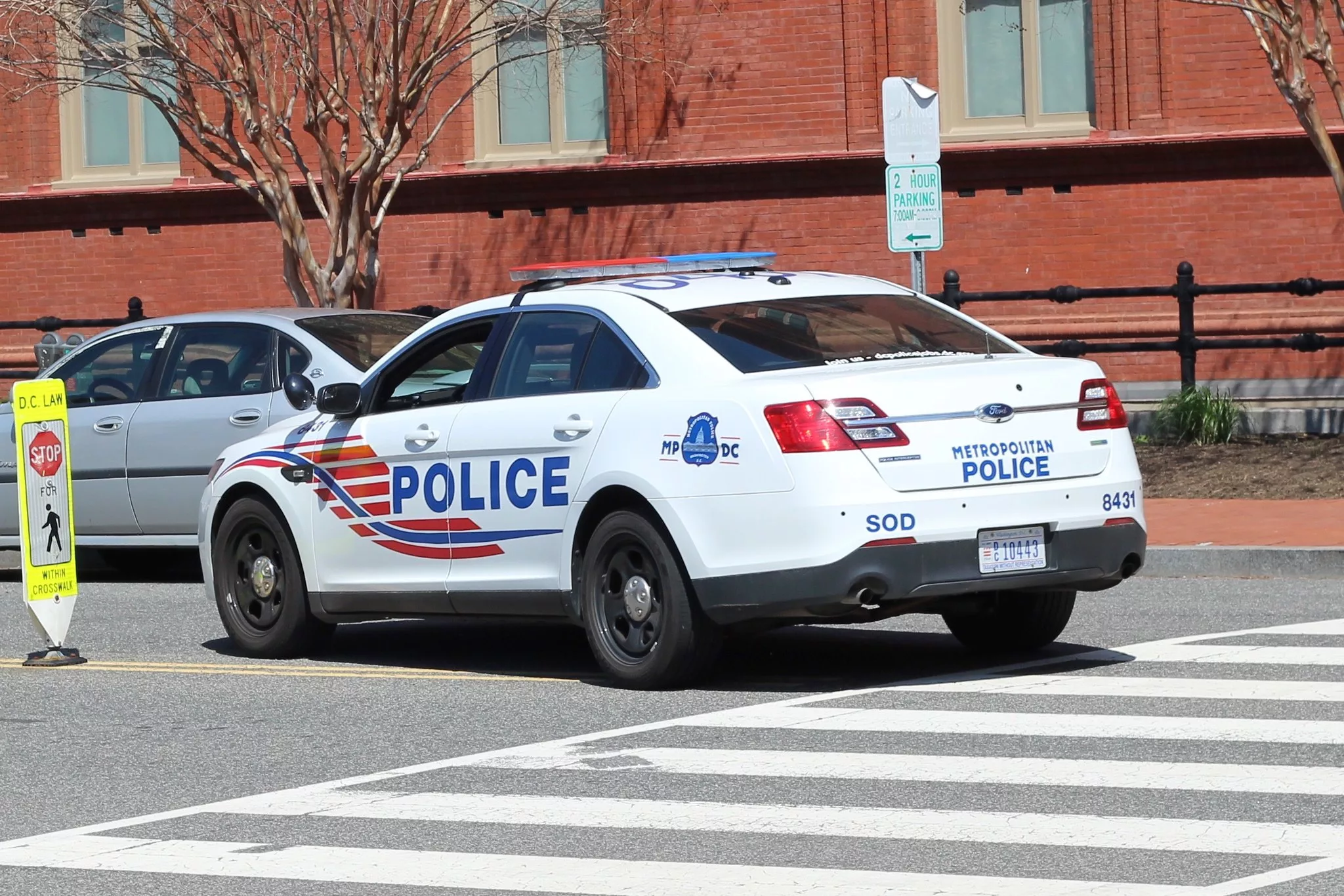D.C. Violates ADA By Sending Police to Mental Health Crises: ACLU
A new lawsuit alleges that the city is discriminating against people with mental health disabilities by continuing to send armed officers to mental health calls.

The American Civil Liberties Union of Washington, D.C., filed a lawsuit in federal court Thursday alleging that the district’s practice of sending police officers—instead of mental health specialists—to mental health emergencies violates the Americans with Disabilities Act.
“Someone who calls 911 for a physical health emergency gets trained medical providers who can treat and stabilize them,” said Susan Mizner, director of the ACLU’s Disability Rights Program, in a press release. “But someone who calls 911 for a mental health emergency gets a police officer with handcuffs and a gun.”
According to the lawsuit, these differing responses constitute a breach of the Americans with Disabilities Act, which prohibits government entities from denying people with disabilities equal access to government services and programs. The ACLU is suing on behalf of Bread for the City, a local nonprofit that provides healthcare and social services to lower-income and unhoused communities.
In 2021, amid a national reckoning on police violence, D.C. expanded an effort to divert mental health calls to the Community Response Team (CRT), a unit within the city’s Department of Behavioral Health. The move was supposed to give 911 dispatchers the option to send teams of mental health experts and peer support specialists to respond to reports of people in crisis instead of armed police officers.
But in practice, this rarely happens. One reason is that the CRT has not been adequately funded or staffed, according to the ACLU’s complaint. Mental health professionals told the ACLU that teams take hours to arrive after being dispatched to emergencies. And while residents can also call the CRT directly via a dedicated line, the agency doesn’t have enough employees to answer these service requests consistently. The phone just “rings and rings,” a former CRT employee said.
As a result, less than 1 percent of 911 calls classified as mental health emergencies in fiscal year 2022 were handled by the CRT, according to the complaint. By contrast, an EMT or a paramedic responded to 90 percent of 911 calls involving physical health emergencies that same year, the lawsuit states. D.C. employs about 1,600 EMTs and paramedics, compared to 44 CRT members.

Even when the CRT does respond, specialists may be sidelined by police officers. During a hearing on the Department of Behavioral Health’s performance in 2022, city Councilmember Janeese Lewis George said a constituent’s loved one called the CRT while experiencing a mental health crisis. Both Metropolitan Police Department officers (MPD) and CRT members responded. According to the complaint, police officers ultimately shot and killed the person in crisis.
MPD officers receive little training in engaging with people experiencing mental health crises. According to the ACLU, the most advanced training MPD offers on this issue is its Crisis Intervention Officer training course—an optional 40-hour course. EMTs, meanwhile, must complete a 150-hour course and pass an exam before responding to physical health emergencies in D.C.
The ACLU argues that this inequity deprives people with mental health disabilities of an equal opportunity to benefit from D.C.’s emergency response program, violating the Americans with Disabilities Act.
D.C. is one of many major U.S. cities to pilot alternative responses to mental health crises, prompted by data showing clear risks associated with police involvement. Nationally, nearly 1 in 5 people fatally shot by police since 2015 were experiencing a mental health crisis when police killed them, according to The Washington Post’s database of fatal police shootings. Since 2015, police have shot and killed more than 1,700 people experiencing mental health crises.
The Department of Justice has seized on this disparate treatment of people experiencing behavioral health issues during its recent investigations into police departments in Minnesota and Louisville. In both probes, DOJ officials concluded that the municipalities had “violated the ADA by relying on police officers as the primary first responders to mental health emergencies and diverting only a small share of 911 mental health emergency calls to alternative first responder programs staffed by mental health professionals,” according to the ACLU lawsuit.
Although D.C. has made gestures toward developing a non-police response to mental health calls, the current alternatives are falling far short, according to the ACLU.
“Police are not the right people to respond to someone experiencing a mental health crisis, and we should stop expecting them to be,” said Ashika Verriest, a senior staff attorney with the ACLU’s Criminal Law Reform Project. “As a matter of safety and equality, D.C. and communities across the country must invest in robust and appropriate crisis response, so that all our neighbors get the proper care they need.”
